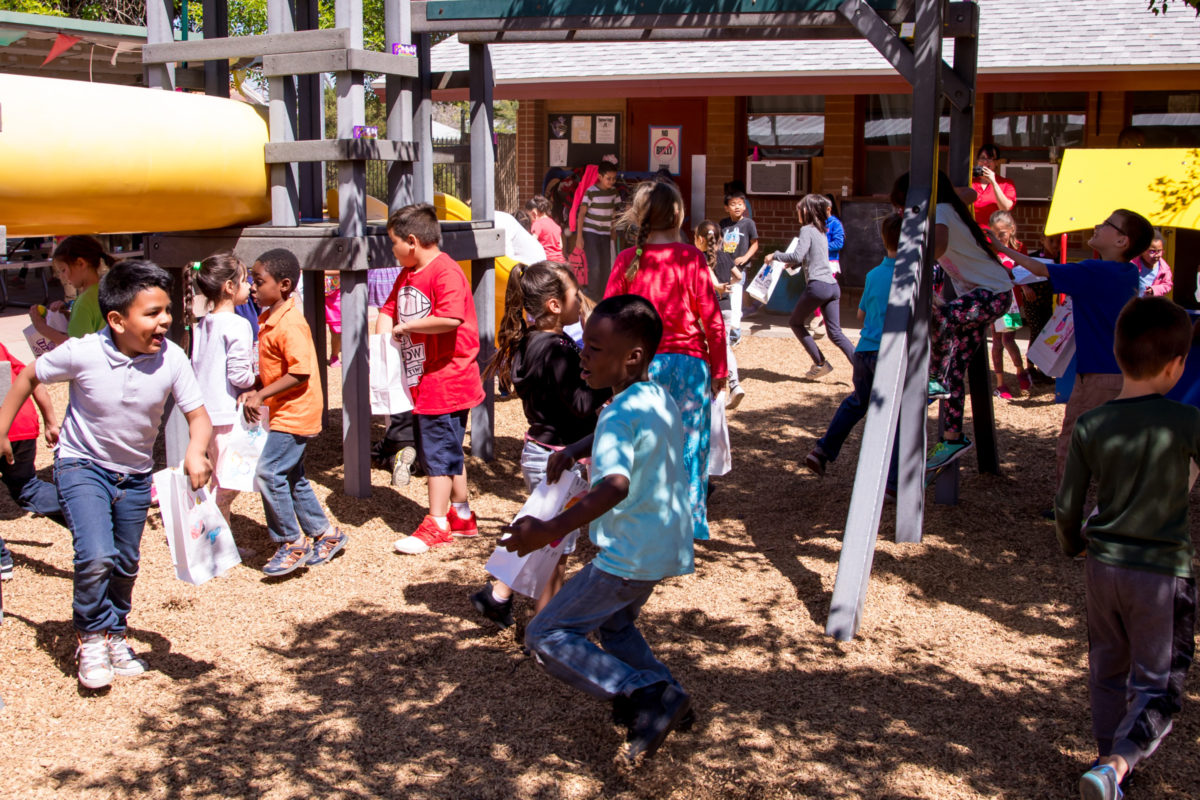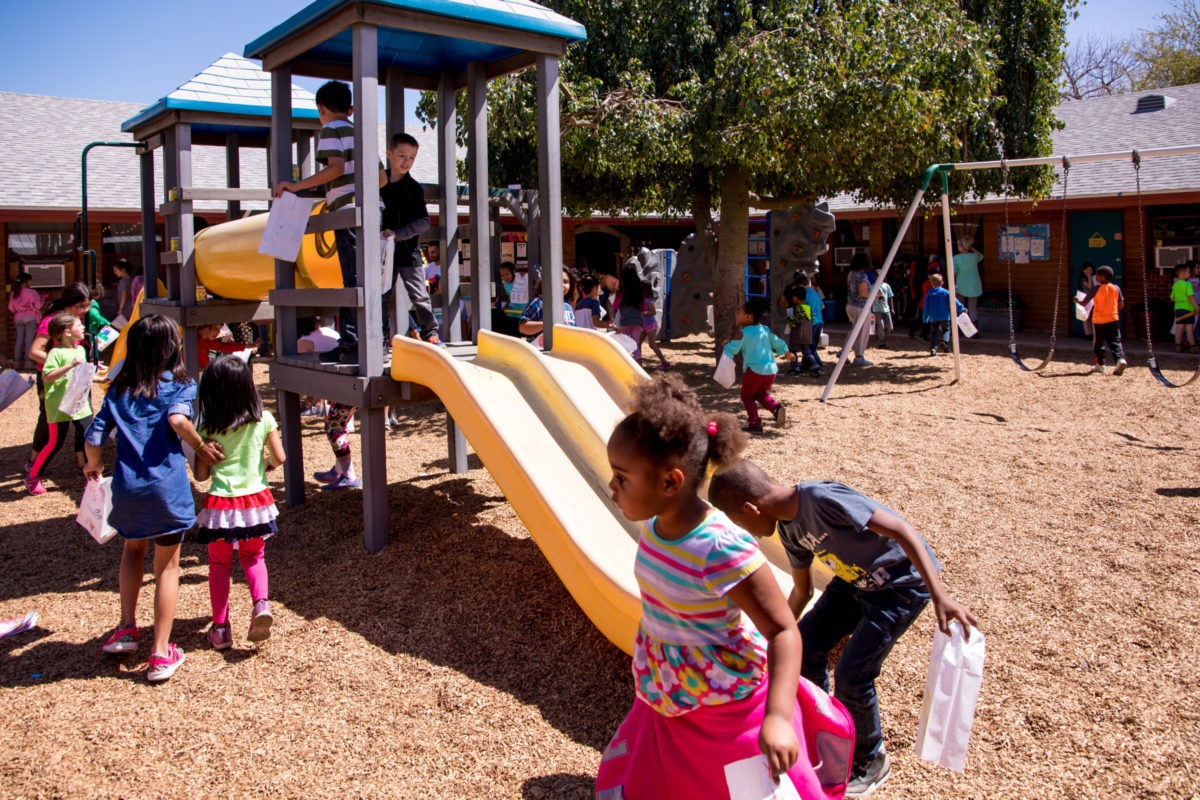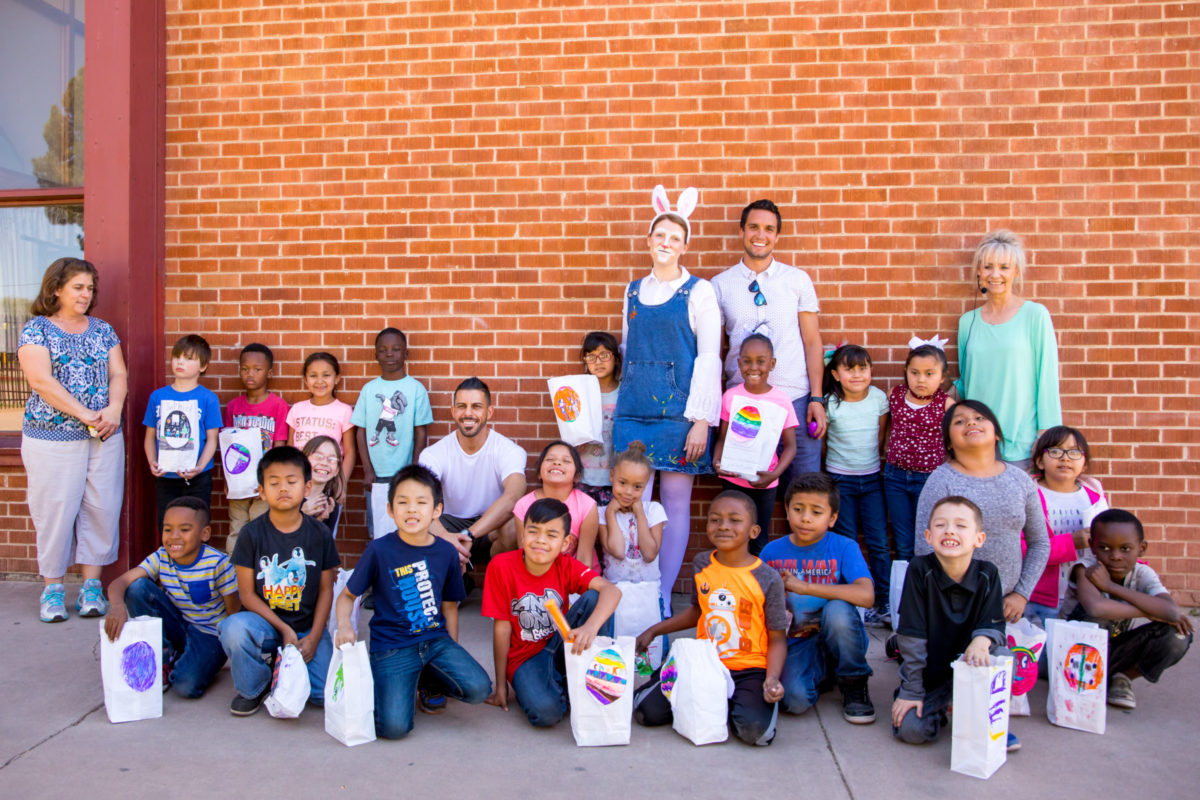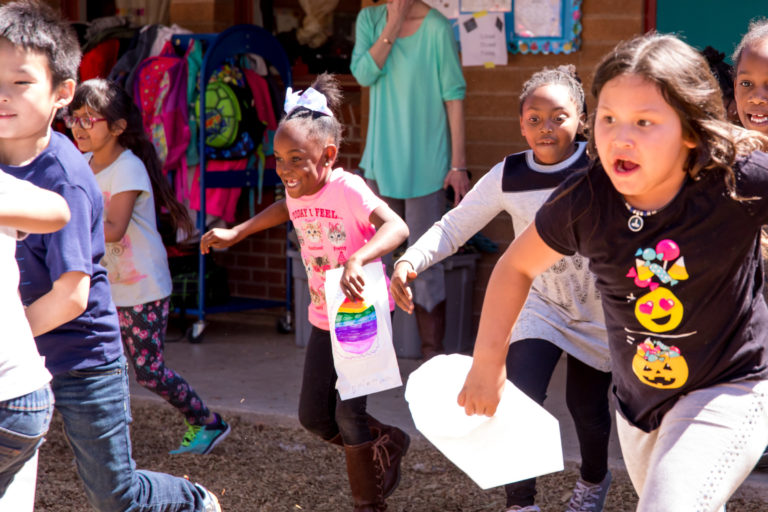At the time of year when nature is renewing itself, we can renew ourselves, too, by organizing a fun event that benefits a group in need: a community Easter egg hunt! Here, we show you the six-step timetable that will ensure a fabulous success.
“We chose to hold an Easter egg hunt because it would be an easy method to bring in people who want to give back,” says Fraser Laveay, founder of Change Your Stars Foundation, a non-profit that provides impoverished children with role models and unforgettable experiences.
Change Your Stars held a community Easter Egg hunt to these children with leaders who wanted to reach them but didn’t know how. The event was funded by a charity soccer tournament and individual contributions, and organizations such as Target, Disney on Ice and the Phoenix Suns provided prizes.
MORE: Throw an epic millennial Easter party

If you’re thinking of holding your own community Easter egg event, you need to keep a few things in mind if you’re looking for a similar success. A good starting point is this timeline:
Six to nine months out: Identify the children who will participate in the hunt. You can chose a school or daycare, a certain group (such as Make a Wish or Big Brothers and Big Sisters), or a particular neighborhood.
A recent New Jersey hunt held by the Burlington County freeholders, the county sheriff and a local coffee shop targeted all children with disabilities. Laveay’s group held its hunt for students of Midtown Primary School, which has a large population of children under the poverty level.
It’s important to reach out to the group or school you want to work with to get an estimate of the number of children who will be participating. This detail is crucial in determining what you’ll need in the way of supplies, donations and prizes.

Ongoing, from six months out: Create a master list of what you’ll need, then raise the necessary funds or secure donations of the items.
“You don’t need a ton of money,” Laveay says. “If you can get together 10 friends and each pitches in $50, you can hold a community Easter egg hunt.”
Reach out to community groups and vendors to get donations for prizes. “Everyone knows someone who knows someone,” Laveay points out. “Get them on board with your mission. Most people want to help but don’t know where to start.”
Your community Easter egg hunt timeline
1. Three to six months out (the sooner, the better): Coordinate with the organization or school that will be participating. If you are opening your event to the community, coordinate the time and date with the manager of the site where the Easter egg hunt will be held. (Suggestions: community centers, local churches, the YMCA.) Make sure to set a start and end time.
2. Three to six months out: Gather your volunteers. Start with a group of family and friends. If you need extra hands, reach out to scouting organizations, church youth groups or other organizations that are interested in investing in their community. Ask civic leaders and school officials, too. You’ll be surprised by the number of people who will jump at the chance to give back.
3. One to three months out: Make your rules. These are just as important for your staff as they will be for the participants. Consider if you will be having all the kids hunting at the same time, or if you will stagger them by age or ability. (The Burlington County event, for example, had three sessions: one for the visually impaired, one for the mobility impaired and a final session for those with autism and other disabilities.)
Also consider limiting the number of eggs, “special eggs” and prizes that can be found by any one participant. This will help level the playing field for different age groups or abilities.
4. Two weeks to one month out, if necessary: Start advertising. If your event is closed (for example, only for a certain school), you might not need to advertise at all.
For most cases, however, you’ll want to get the word out to associations, families and others who fall within your audience. Contact the papers, radios, local bloggers and podcasters; send circulars through the nearby schools; and put posters in local libraries.
5. Up to one month out: Get your supplies. Start gathering prizes, shopping for whatever isn’t going to be donated, and filling those plastic eggs. Remember: You’ll need bags or baskets for the children to gather the eggs in.
6. The night before or the morning of the event: Decorate the venue. Use colored banners, pastel chalk lines or other decorations to delineate the field. Then, hide your eggs — and have fun!
With every little effort and financial investment, you can host a community Easter egg hunt that will create lasting positive memories for the children in your targeted audience and your volunteers alike.
“When we said, ‘Go!’ and I saw the kids go bananas to find something, I felt so happy,” Laveay says. “It’s just great to see these kids so excited. If you go and do it once, you’ll be hooked.”










